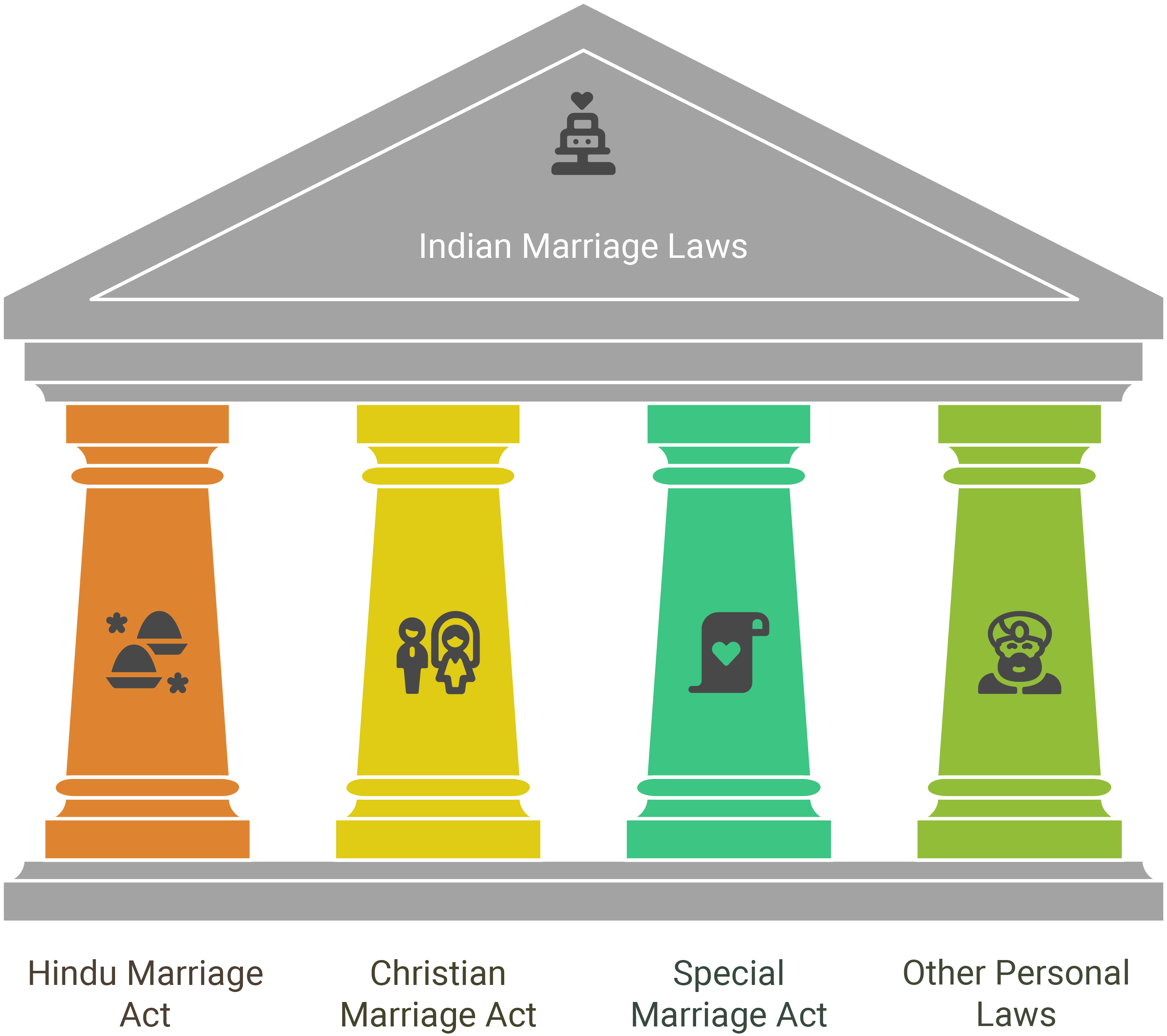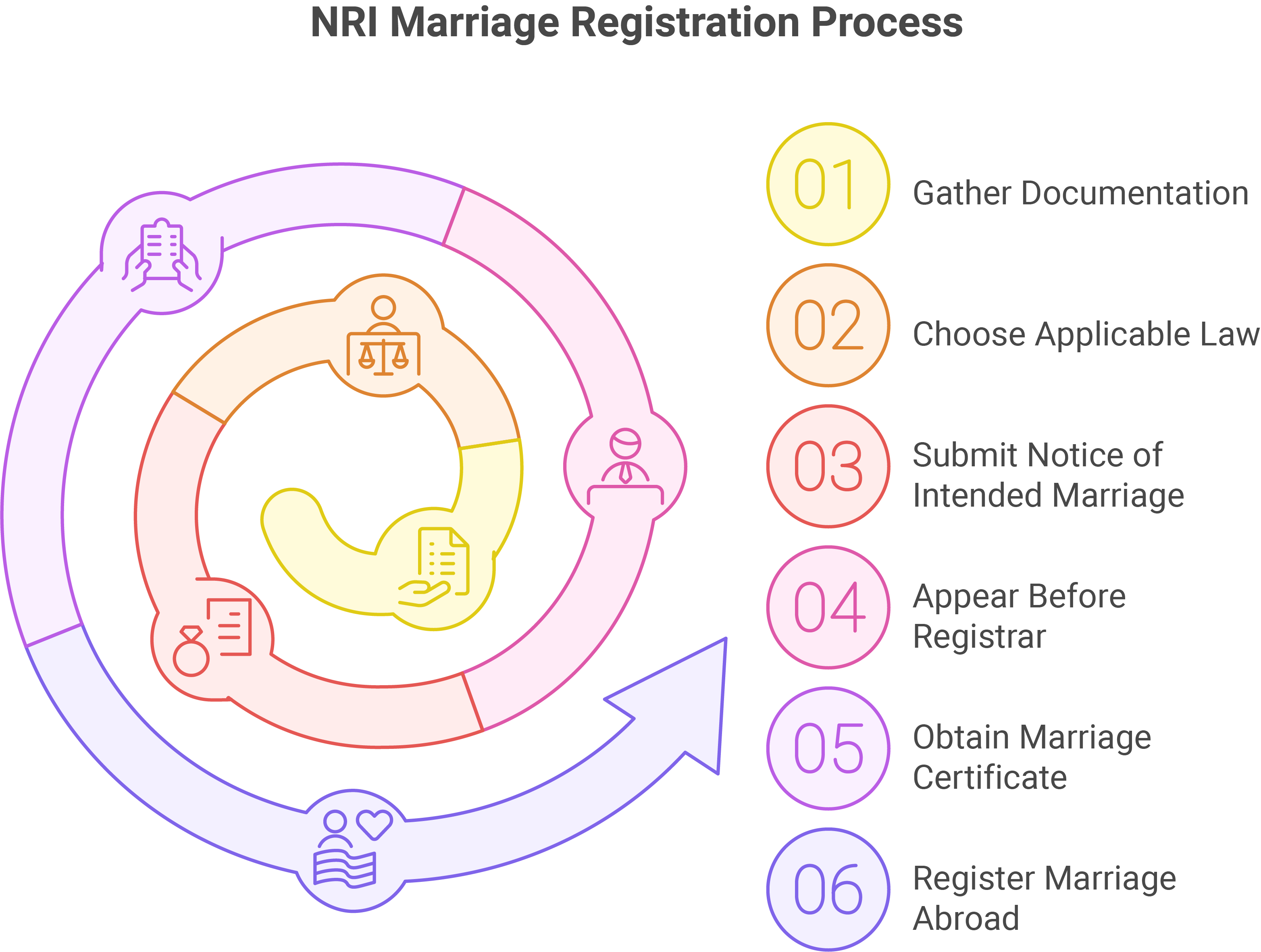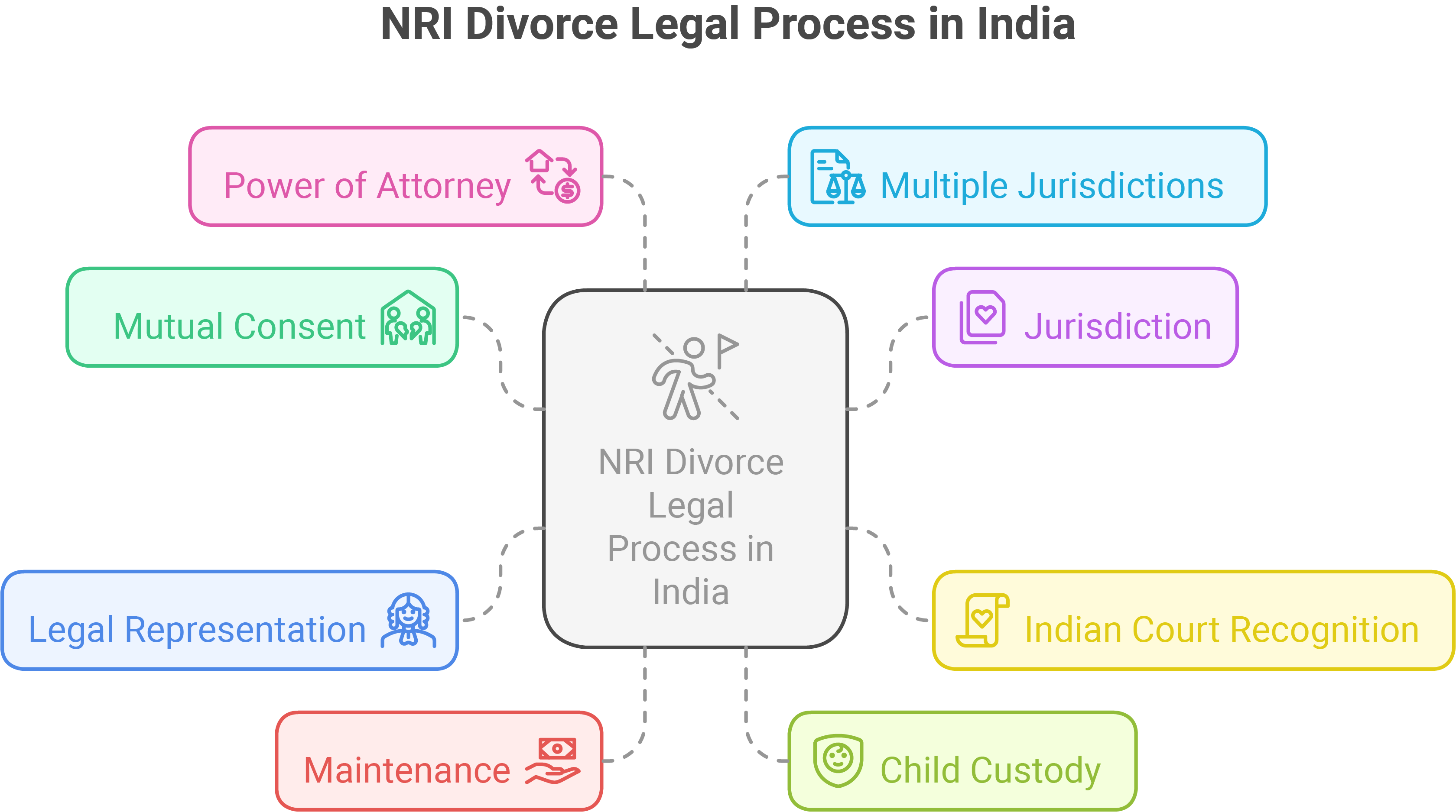Marriage & Divorce laws for NRIs
For Non-Resident Indians (NRIs), marriage and divorce laws are governed by a combination of Indian laws and the laws of the country where the NRI resides. Divorce proceedings in India can be complex, especially when one or both spouses are not present in the country.
Marriage laws in India
In India, marriage is governed by both religious personal laws and the Special Marriage Act, 1954.
- The Hindu Marriage Act: 1955, governs Hindu, Sikh, Jain & Buddhist marriages
- Indian Christian Marriage Act: 1872, governs Christian marriages.
- The Special Marriage Act: provides a secular framework for all citizens, regardless of their religion.
- Other Personal Laws: Other religions also have their own personal laws, such as the Parsi Marriage and Divorce Act, 1936, and the Muslim Personal Law (Shariat) Application Act, 1937.
Marriage registration
All NRI marriages, including those performed under customary rites or the Special Marriage Act, should be registered.
Gather requisite documentation
For NRI Marriage Registration, specific documentation is mandatory. It is essential to ensure that all documents are in order before starting the process. The key documents required are:
- Proof of Identity: Aadhar card, passport, or any government-issued ID for both parties.
- Proof of Address: Utility bills, bank statements, or rent agreements showing your address in India or abroad.
- Passport-sized Photographs: Generally, four passport-sized photos of both the bride and groom.
- Birth Certificate or Proof of Age: A valid document showing the date of birth for both individuals.
- NRI Status Proof: For NRIs, a copy of the passport, visa, and any overseas residency certificate.
- Affidavit of Marital Status: Affidavits affirming that both parties are unmarried (if applicable) or divorced/widowed.
- Witnesses: Three witnesses with their identity proof, who must be present at the time of marriage registration.
Choose the Applicable Law for Marriage
- As mentioned earlier, NRIs can choose the marriage act under which the marriage will be registered. The choice depends on the religion and personal preferences of the individuals.
- In most of the cases, if both the parties are from same religion, respective marriage act is chosen For For interfaith marriages, the Special Marriage Act, 1954 provides a universal framework, regardless of religious background.
Submit the Notice of Intended Marriage
- If you are registering under the Special Marriage Act, 1954, you must submit a “Notice of Intended Marriage” to the Marriage Registrar at least 30 days before the wedding date. This notice is publicly displayed to allow objections, if any, to the marriage. After 30 days, the marriage can be solemnized if no objections are raised.
- In the case of Hindu Marriage Act, 1955, marriages are typically solemnized first according to religious customs, after which couples can apply for marriage registration.
Appear Before the Marriage Registrar
For NRI Marriage Registration, both parties and their witnesses must be present before the Marriage Registrar on the given date. You will need to:
- Sign the marriage registration form in front of the Registrar.
- Present the required documents.
- Verify that all conditions of marriage under the applicable law are satisfied.
For Special Marriage Act registrations, the marriage must be solemnized before the Registrar. If the couple is married under the Hindu Marriage Act, the registration can take place after the wedding ceremony.
Obtain the Marriage Certificate
- Once the documents are verified and the ceremony is completed (in case of the Special Marriage Act), the Registrar will issue the marriage certificate. This certificate is a vital legal document that serves as proof of marriage in India and abroad.
- The marriage certificate is essential for NRIs as it is often required for various purposes, including visa applications, joint financial transactions, property ownership, and legal proceedings.
Registration for marriage conducted outside India
- If marriage is conducted abroad, the couple should register with the Indian embassy within 30 days from date of marriage.
Divorce laws in India:
The NRI Divorce Legal Process in India involves multiple legal and jurisdictional complexities.
Mutual Consent:
- If both spouses are Indian citizens and married under the HMA, they can seek divorce by mutual consent under Section 13-B of the Act.
- At least one spouse must be residing in India at the time of filing.
Jurisdiction: If the marriage was solemnized in India, Indian courts have jurisdiction. If both spouses are abroad, the divorce may be obtained under the laws of their country of residence.
Indian court recognition: A divorce obtained abroad may be recognized in India if it meets the requirements of Section 13 of the Civil Procedure Code (CPC) and aligns with Indian legal principles.
Legal representation: It’s advisable to consult with a lawyer experienced in both Indian law and international legal standards, particularly for NRIs who are not physically present in India.
Maintenance: The court can order maintenance or alimony for the spouse, even if they are living abroad.
Child custody: The court can give the custody of the child to the parent, which is in the best interest of the child.
Power of Attorney:
- NRIs often face challenges due to geographical distance and the need to attend hearings in India.
- If unable to attend hearings in India, one party can appoint a legal representative with a Power of Attorney to act on their behalf.
Multiple jurisdictions: The complexities of international law can make it challenging to navigate the divorce process.



